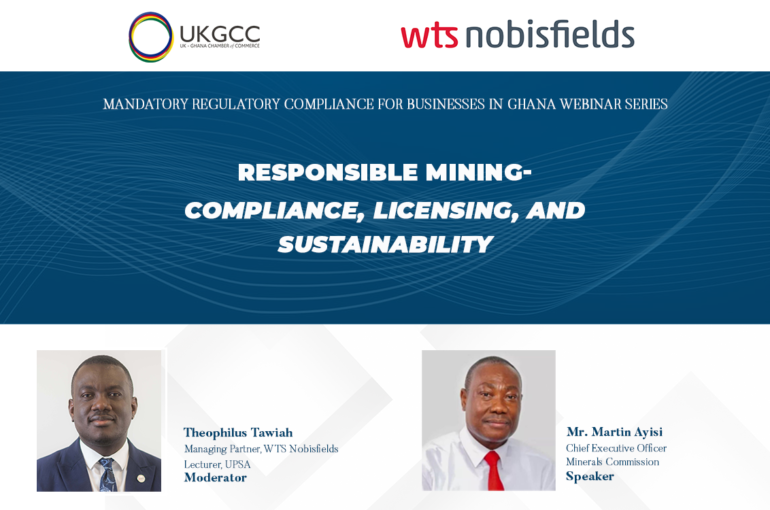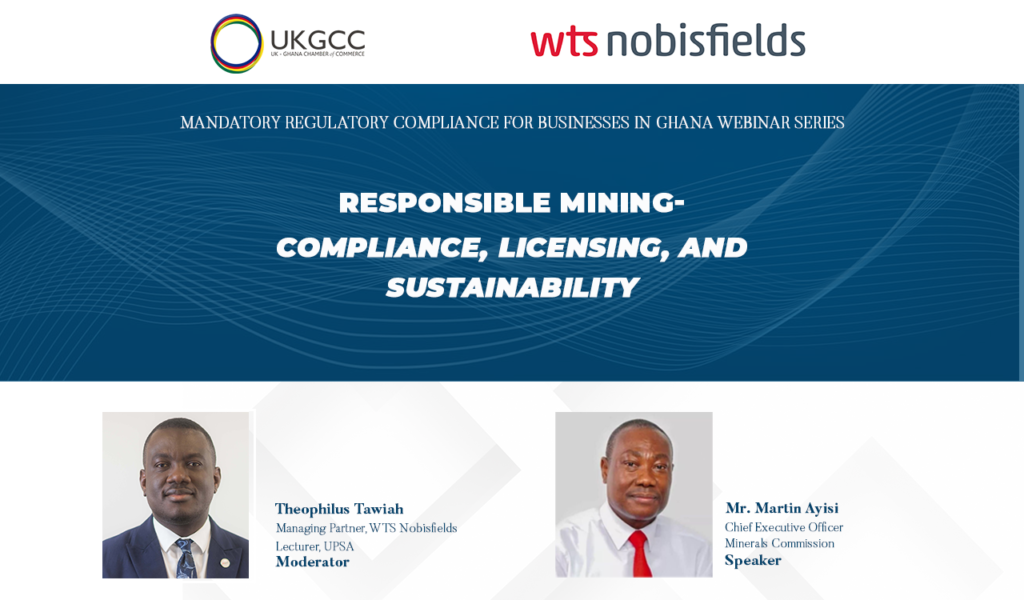Minerals Commission to introduce a nine-year limit on Prospecting Licences- CEO of Minerals Commission
Minerals Commission to introduce a nine-year limit on Prospecting Licences- CEO of Minerals Commission


Mr. Martin Ayisi, the Chief Executive Officer (CEO) of the Minerals Commission, has disclosed that an ongoing review of Ghana’s mining laws aims to introduce a nine-year limit on prospecting licences to ensure accountability.
He revealed that Ghana remains one of the few African countries with no limit on prospecting licences and that the measure aims to encourage companies to actively work on their licences instead of holding them indefinitely.
“We are the only country in Africa that does not have a limit to the number of times you can hold a prospective licence. We have done a review of the law so we are likely to restrict it to nine years. The rationale behind the prospective licence is to ensure that people work- you use it or lose it,” he stated, reinforcing the need for active engagement in the mining sector.
He made these remarks during the UK-Ghana Chamber of Commerce (UKGCC) and WTS Nobisfields webinar on “Responsible Mining—Compliance, Licensing, and Sustainability.”
Role of the Minerals Commission
The Minerals Commission, established 40 years ago under the Minerals Commission Act 450 of 1993 and PNDC Law 154, serves as the primary regulatory body overseeing the country’s mineral resources.
The Commission plays a crucial role in regulating and managing the utilisation of Ghana’s mineral resources. It is responsible for receiving and processing various applications, authorisations, and permits for mineral exploration and extraction before recommending them to the Minister for approval. Additionally, it formulates and recommends policies to the government while considering national priorities, implements government policies in the mining sector, and ensures compliance by monitoring the operations of mining companies.
Here, Mr. Ayisi clarified that the Commission does not have the authority to grant mining rights. Instead, the sole authority to grant, revoke, and approve any authorisation for mineral exploration or mining lies with the Ministry for Lands and Natural Resources. The Ministry, however, can only act upon the recommendations of the Minerals Commission.
Mining in Ghana: Key Requirements
According to Mr. Ayisi, mining in Ghana requires four key authorisations. The Minerals Commission must first grant rights, followed by Parliamentary approval. The third requirements involves the acquisition of an environmental permit from the Environmental Protection Authority (EPA) after securing a mining lease. Finally, an operating permit must be issued by the Minerals Commission.
“Operating without the necessary permits is considered illegal mining,” Mr. Ayisi stressed.
He cautioned, however, that mining leases are not readily available and are typically cancelled, withdrawn, or suspended when they are not in use..
Furthermore, he noted that the industry is capital-intensive and advised companies interested in setting up operations in the sector, to seek out collaborations. A popular partnership he cited, is the “farm-in and farm-out arrangement”, in which one party provides financial investment while the other manages operations. Additionally, grants are available for individuals interested in entering the sector.
Mr. Ayisi also mentioned that the Minerals Commission makes a conscious effort to prioritise local content by awarding mining-related services such as security, fuel supply, open-pit operations, and medical services to Ghanaian companies. However, in cases where local capacity is lacking, the sector may be opened to external providers.
Addressing Illegal Mining
Addressing the ongoing issue of illegal mining, popularly known as ‘galamsey,’ in Ghana, Mr. Ayisi emphasised that the Minerals Commission does not issue licences for operations in water bodies.
“If you see anyone mining in a water body, know that they are operating illegally because we do not give permits for such activities,” he remarked.
He further stated that it is the responsibility of the state to deploy appropriate security measures to combat illegal mining, adding that the government is expected to take action soon. However, where licensed miners are perceived to be engaging in galamsey, he urged them to be reported to the Minerals Commission for accountability.
Mr. Ayisi finally assured the public that “the Minerals Commission is committed to ensuring that Ghana remains a leader in responsible mining practices across the continent”.
The webinar, moderated by Theophilus Tawiah, Managing Partner, WTS Nobisfields and lecturer at UPSA Law School, discussed a wide range of related topics.
Conclusion
The webinar provided a comprehensive overview of Ghana’s mining regulations and efforts to promote sustainable mining practices.
About the UKGCC
The UK-Ghana Chamber of Commerce is the leading private sector organisation proffering trade and commerce support for UK/Ghana businesses. We would love to know how we can support you grow your business! Write to us at info@uykgcc.com.gh today.
Search
Archives



